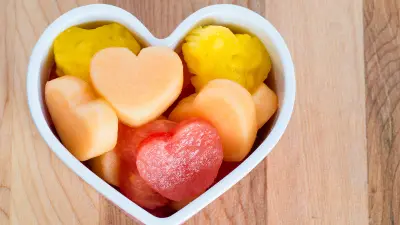If your child is struggling with mood swings, lack of motivation, or difficulty focusing, the solution might not be another behavior chart or new routine—it might be on their plate. The brain depends on key nutrients to function properly, and without them, kids can experience dips in energy, focus, and emotional resilience. According to Dr. Andrew Huberman, a Stanford neuroscientist, the amino acids and healthy fats in our diet are directly tied to the brain chemicals responsible for motivation, calmness, and clarity. So before reaching for another supplement or cutting more screen time, take a closer look at what’s fueling your child’s brain.
Here are some of the key takeaways for your kids from Andrew Huberman’s podcast interview with Dr. Chris Palmer:
Key Nutrients That Shape Your Child’s Mind
1. L-Tyrosine: Fuel for Focus and Motivation
- What it is: An amino acid found in high-protein foods like meats, eggs, nuts, and seeds.
- Why it matters: L-Tyrosine is a precursor to dopamine, a chemical that drives motivation, energy, and focus.
- How it works: When your child consumes foods rich in tyrosine, their brain has more raw material to create dopamine, which helps them stay engaged and pursue tasks—even challenging ones.
“Dopamine is not about pleasure—it’s about pursuit, motivation, and desire.” — Dr. Andrew Huberman
2. Tryptophan: The Calm-Down Amino Acid
- What it is: An amino acid found in turkey, oats, dairy, bananas, and seeds.
- Why it matters: Tryptophan supports the production of serotonin, the brain chemical responsible for mood regulation and calm.
- How it works: After high-energy, stimulation-filled days, foods rich in tryptophan can help children wind down, regulate their emotions, and transition into a calmer state of mind.
3. Omega-3 Fatty Acids: Brain Lubricant for Emotion and Cognition
- What it is: Essential fats, particularly EPA (eicosapentaenoic acid), found in fatty fish (like salmon and sardines), walnuts, flaxseeds, and algae oil.
- Why it matters: Omega-3s help regulate mood and reduce inflammation. They’ve also been shown to reduce symptoms of depression and improve emotional resilience in both adults and children.
- Bonus: Omega-3s support overall brain structure, which is especially important for developing minds.
“They found that 1,000 mg of EPA was as effective as Prozac in reducing depressive symptoms.” — Dr. Andrew Huberman
4. Protein Triggers Fullness—In the Brain, Not Just the Stomach
- Surprising fact: Kids don’t just stop eating when they feel full—they stop when their brain has received enough amino acids to make key neurotransmitters like dopamine and serotonin.
- Why that matters: If your child is constantly snacking, craving sweets, or seems “always hungry,” it might be that their brain is signaling a need for more nutrient-dense fuel—not just calories.
“Kids don’t stop eating when they’re full. They stop when their brain has enough amino acids.” — Dr. Andrew Huberman
How to Build a Brain-Friendly Plate
When in doubt, use this simple formula to support better moods and focus:
Protein + Omega-3s + Complex Carbs = A Happier, More Focused Child
Try:
- A breakfast of scrambled eggs with flax toast and berries
- A lunch of tuna salad with avocado and whole-grain crackers
- A snack of Greek yogurt with walnuts and chia seeds
Balancing brain chemistry through food doesn’t have to be complicated—it just has to be intentional.
Thoughtful Food
Our children’s brains are developing rapidly, and what we feed them can either support or sabotage their ability to thrive. Instead of chasing short-term fixes, give your child the nutritional foundation for long-term emotional balance and sustained focus. With a few mindful swaps and additions to your meals, you can make a powerful difference in their everyday behavior, mood, and learning capacity.








Leave a Reply